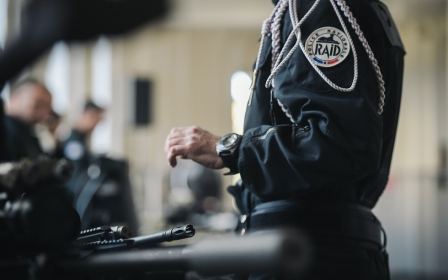Police and MI5 criticised over Manchester and London bombings

LONDON - Police and the MI5 intelligence service did not do enough to monitor and disrupt the activities of two young men who carried out bombings in Manchester and aboard a London tube train, according to an investigation by a parliamentary oversight body into a series of attacks in the country last year.
According to the Intelligence and Security Committee (ISC) report, published on Thursday, MI5 had admitted that it should have done more to restrict the movements of Salman Abedi, the 22-year-old British-Libyan who killed himself and 22 others in a bomb attack at the Manchester Arena in May last year.
Dominic Grieve, the ISC chair, also said the committee had discovered information about Abedi "which caused us serious concern" but which could not be made public because it was so highly sensitive.
The report also said that a number of serious mistakes by police and government officials had allowed Ahmed Hassan, an 18-year-old Iraqi asylum seeker, to build a bomb and partially detonate it aboard a train at Parsons Green station on London's underground network.
The ISC examined UK security measures in relation to the five serous terrorist attacks in the country last year, which cost 36 lives with scores injured.
Members of the committee said that they could not be sure that the underground train and Manchester bombings could have been averted if police and security officials had acted differently, but that policies needed to be revisited.
Abedi, the Manchester bomber who MI5 had identified as a person of interest in 2014, returned undetected to the UK from Libya a few days prior to the attack because the intelligence service had decided not to restict or monitor his travel, the report said.
"MI5 have since admitted that given the information they had on Abedi, they should have done so, and they have now revisited their policies in this respect," said Grieve.
Abedi had also been able to visit an "extremist contact" in prison without MI5 or counter-terrorism policing taking any follow-up action and had never been considered for referral into the Prevent counter-extremism programme, Greive added.
"The case also highlights deficiencies in MI5’s system for monitoring individuals of interest not currently under active investigation," he said.
"Abedi had in fact been flagged for review, but MI5’s systems moved too slowly and the review had not happened prior to him launching his attack."
Grieve said that his committee had discovered information about the Manchester bomber "which caused us serious concern" but which could not be made public because it was so highly sensitive.
He said that he was raising this so the public could be assured that potentially embarrassing material had been included in the full and unredacted copy of the report.
Middle East Eye last year revealed that British intelligence agencies had operated an "open door" policy that allowed Libyan exiles and British-Libyan dual nationals to travel to and from the country in 2011 to join an uprising against then-Libyan leader Muammar Gaddafi.
Some of those who were allowed to travel had previously been subjected to terrorism-related control orders which restricted their movement.
Abedi, the British-born son of exiled dissidents who returned to Libya as the revolution against Gaddafi gathered momentum, is understood to have spent time in the North African country in 2011 and to have returned there on several subsequent occasions.
'Litany of errors'
Pointing to a “litany of errors” and “fundamental failings”, the ISC also said there would need to be a further inquiry into the September 2017 Parsons Green bombing in which 23 people suffered burns and 28 were crushed in the stampede that followed.
The ISC condemned as unacceptable the UK Home Office’s failure to provide sufficient information for its inquiry.
The committee’s concerns centre on the way in which Hassan was not properly monitored despite having been identified as someone who was a potential threat.
Hassan was jailed for life earlier this year with the judge recommending that he serve a minimum of 34 years.
The committee also renewed its appeal to internet and communications companies to do more to remove material that it considers extremist.
Grieve, a Conservative MP and former attorney general, said that the committee had first raised these concerns four years ago following the murder of an off-duty soldier in London.
“It was Facebook on that occasion,” he said. “We recommend that pressure is put on the communications service providers by the business community. We strongly consider that action which affects the providers’ profits will hit home harder than an appeal to them to do the right thing.”
Rendition report
Meanwhile, the British government has still not decided whether or not to establish a judge-led inquiry into the UK's involvement in rendition and the mistreatment of detainees, after the ISC earlier this year reported on more than 600 human rights abuses in the years after the 9/11 attacks by al-Qaeda in the US in 2001.
In a response to that earlier report, also published Thursday, the government said that the Ministry of Defence had asked military police to consider allegations against one army interrogator, thought to be a junior officer.
The ISC report describes hundreds of occasions in which the UK’s intelligence agencies had become involved in kidnap and torture and inhumane treatment, frequently with ministerial approval.
In one case, British intelligence officers watched a man who subsequently gave false evidence about a link between al-Qaeda and Saddam Hussein, which was cited in the run-up to the 2003 invasion of Iraq, being loaded in a sealed coffin onto a CIA flight at Bagram airbase in Afghanistan to be flown to Egypt for further interrogation.
Responding to the ISC report on the 2017 attacks, May said that MI5 and the police had led internal reviews into the handling of intelligence relating to the Manchester bombing and other attacks in London to "identify enhancements to their operational practices".
She said they had also commissioned an operational improvements review, which is being overseen by David Anderson, the former independent reviewer of counter-terrorism legislation who is now a member of the House of Lords.
Middle East Eye delivers independent and unrivalled coverage and analysis of the Middle East, North Africa and beyond. To learn more about republishing this content and the associated fees, please fill out this form. More about MEE can be found here.





